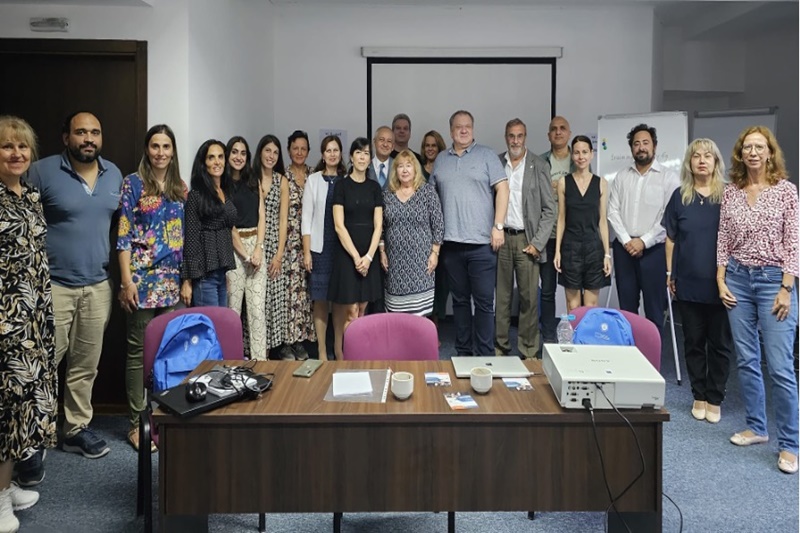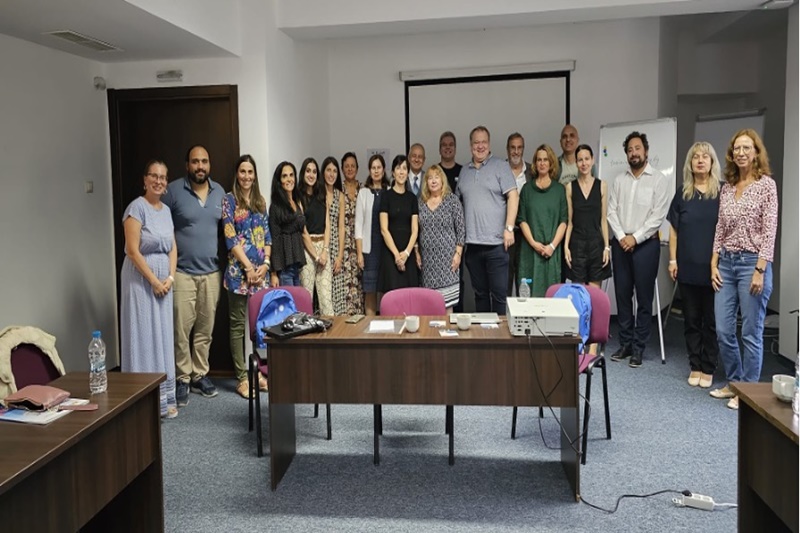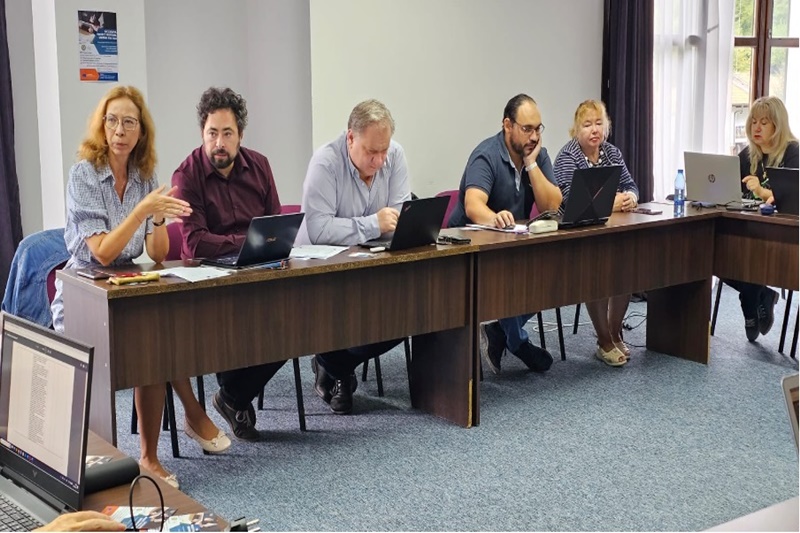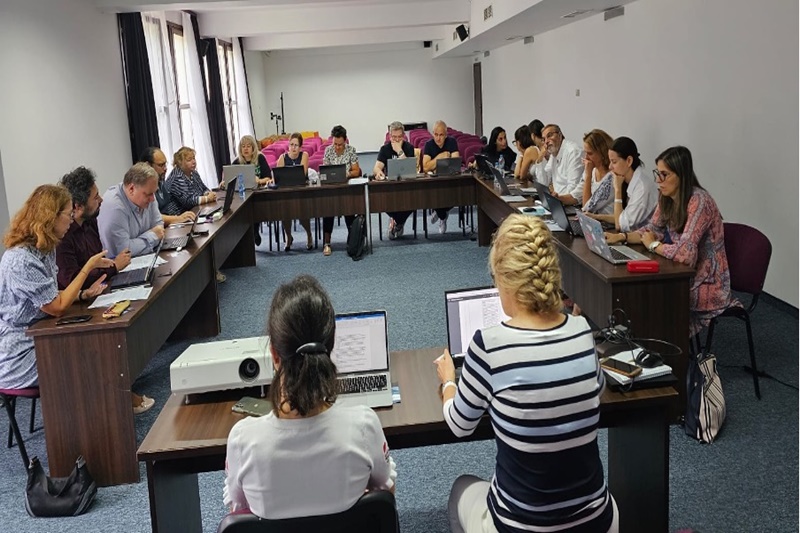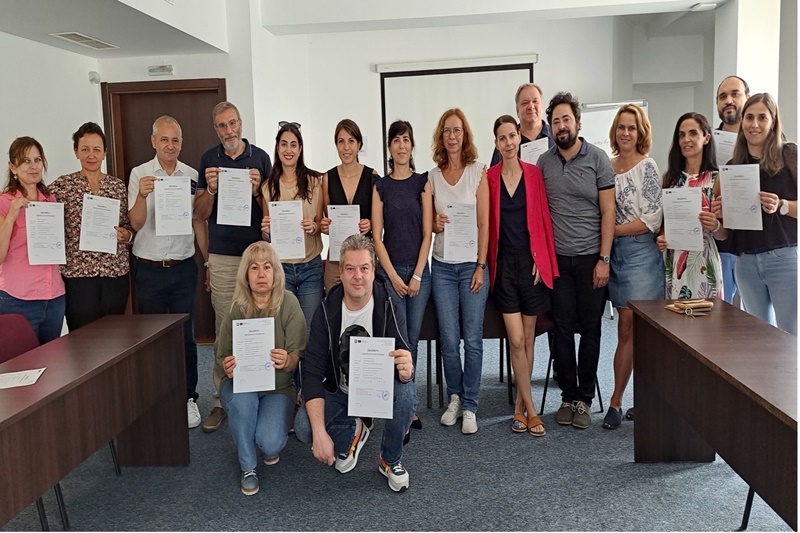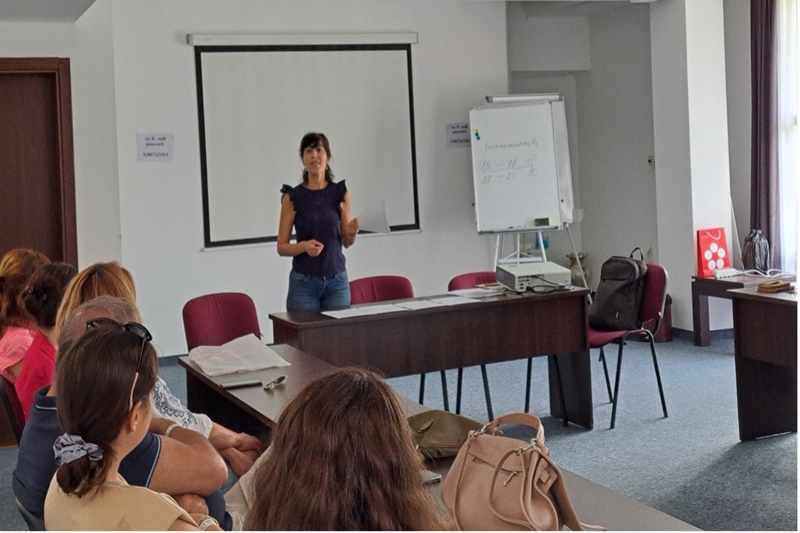The First Blended Intensive Programme, coordinated by the D. A. Tsenov Academy of Economics, hosted participants from seven countries.
The First Blended Intensive Programme “Successful Project Proposal Writing for HEIs”, coordinated by the D. A. Tsenov Academy of Economics, hosted 19 scholars and administrators from universities from 7 EU Member States and third countries associated to the Erasmus+ programme – Polytechnic Institute of Tomar (Portugal), University of Camerino (Italy), Valahia University of Targoviste (Romania), University of South Bohemia (Czech Republic), Trnava University (Slovakia), and Adana Alparslan Turkes Science and Technology University (Türkiye).
The concept of the Blended Intensive Programme was developed in partnership between the D. A. Tsenov Academy of Economics, Polytechnic Institute of Tomar (Portugal), University of Camerino (Italy), and Valahia University of Targoviste (Romania). It was designed in two parts: 5-days physical intensive training in Svishtov and Chiflik and 30-days virtual training in an e-learning environment.
The Blended Intensive Programme has been carried out within the project No. 2021-1-BG01-KA131-HED-000008608, implemented by the D. A. Tsenov Academy of Economics with the financial support of the Erasmus+ programme.
During the physical training sessions, all participants were involved in writing a real project proposal under the Erasmus+ programme, generating ideas for developing work packages and indicators, distributing partners between work packages, conducting analysis of successful projects and approved project proposals, key priorities of the Erasmus+ programme, key actions, and award criteria. The physical part of the Programme has been primary based on the project-based and experiential learning.
The virtual training was conducted by using the Moodle-based e-learning platform of the D. A. Tsenov Academy of Economics https://training.eacademy.bg/. The virtual part of the Blended Intensive Programme has been based on the role-playing approach of teaching and learning. All participants collaborated in small multifunctional international teams. They completed a group assignment in which they played the role of reviewers, gave feedback and recommendations for improvement of a given work package developed by their peers during the physical training sessions. The reviews were sent to the teams who have prepared the work packages to consider the recommendations.


